 W
WFrancisco Amat Rodríguez, better known as Pancho Amat, is a Cuban musician specialized in the tres. In 1971, he became a founding member of Manguaré, which would become one of the leading ensembles within the nueva trova movement. He later played in Adalberto Álvarez y su Son. Currently, he is the leader of his own group, El Cabildo del Son.
 W
WPatricio Ballagas Palacio was a Cuban composer and guitarist, considered an important innovator in trova music. His compositions were written in 44 time when most others were composing in 24 time; and more important, he invented 'double text', where the melody is superimposed over the lead vocal, which then becomes the second voice. He introduced contracanto into the trova form, so that the second voice changes from being intimately connected to the first voice to becoming a melodic and harmonic expression with its own identity.
 W
WAlfredo Boloña Jiménez was a Cuban guitarist who played a role in the early development of the son as director of the Sexteto Boloña.
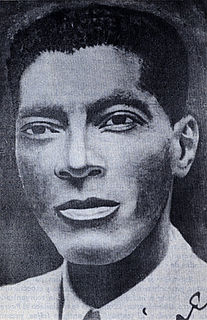 W
WManuel Corona Raimundo was a Cuban trova musician, and a long-term professional rival of Sindo Garay.
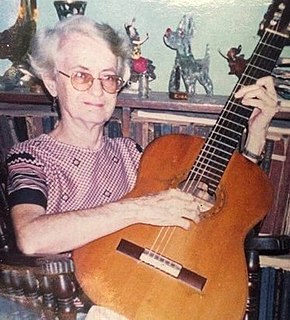 W
WMarta Cuervo was a Cuban guitarist and professor.
 W
WDonna Maria Martinez was a Cuban guitarist and singer who was active in Spain, France, and the United Kingdom in the mid 19th-century. Originating in Cuba, she moved to Seville and studied at the Madrid Royal Conservatory. She performed to prominent audiences in Paris and latterly London, at Her Majesty's Theatre, which attracted significant press coverage.
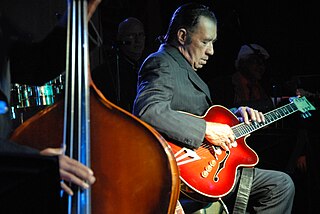 W
WManuel Galbán was a Grammy-winning Cuban guitarist, pianist and arranger, most notable for his work with Los Zafiros, Ry Cooder and the Buena Vista Social Club. One of two surviving members of Los Zafiros, he died on July 7, 2011 of cardiac arrest at his home in Havana, Cuba.
 W
WSindo Garay was Cuban trova musician. He was taught by Pepe Sánchez. Garay was one of the four greats of the trova. He was Spanish and Arawakan descendant.
 W
WHector Garcia is a Cuban-American classical guitarist and composer.
 W
WLiuba María Hevia is a singer and composer from Cuba. She has released several CDs, toured internationally, and collaborated with various artists.
 W
WReyes Latamblet Veranes, better known as Chito Latamblé, was a Cuban tres player who specialized in the changüí genre of eastern Cuba. He is considered one of the most influential treseros, as well as a key exponent and promoter of the changüí in Cuba. From 1945, Latamblé co-directed with his brother the Grupo Changüí de Guantánamo, which featured the most "historically important" exponents of the genre.
 W
WClara (Cuqui) Nicola was a prominent Cuban guitarist and professor.
 W
WEliades Ochoa Bustamante is a Cuban guitarist and singer from Loma de la Avispa, Songo La Maya in the east of the country near Santiago de Cuba.
 W
WIsaac Oviedo was a Cuban tres player, singer and songwriter. He was the founder and leader of the Septeto Matancero for over 50 years, and the author of many famous sones such as "Engancha carretero". Throughout his long career Oviedo only recorded a handful of sessions, mostly for American record labels. He has been called "one of the greatest Cuban tres players" by other musicians such as Efraín Ríos and Pancho Amat. According to the latter, Oviedo was the pioneering and most influential tresero of the septeto format. His technical innovations include the alzapúa thumb stroke and the use of the pinky finger.
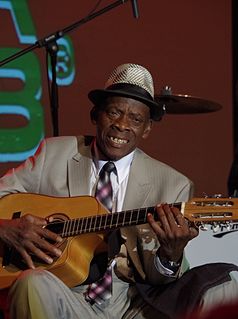 W
WGilberto Oviedo la Portilla, better known as Papi Oviedo, was a Cuban tres player. Papi, the son of musician Isaac Oviedo, started playing the tres when he was about 15. A veteran of many bands, Papi was the tres player in Elio Revé's band for 13 years. He later toured with Buena Vista Social Club, exposing the son cubano genre to wider audiences.
 W
WCarlos Manuel Puebla was a Cuban singer, guitarist, and composer. He was a member of the old trova movement who specialized in boleros and nationalistic songs.
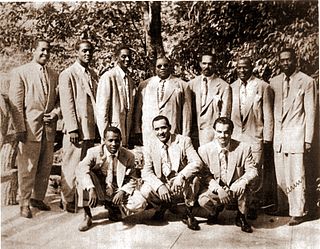 W
WArsenio Rodríguez was a Cuban musician, composer and bandleader. He played the tres, as well as the tumbadora, and he specialized in son, rumba and other Afro-Cuban music styles. In the 1940s and 1950s Rodríguez established the conjunto format and contributed to the development the son montuno, the basic template of modern-day salsa. He claimed to be the true creator of the mambo and was an important as well as a prolific composer who wrote nearly two hundred songs.
 W
WSilvio Rodríguez Domínguez is a Cuban musician, and leader of the Nueva Trova movement.
 W
WJosé "Pepe" Sánchez, was a Cuban musician, singer and composer. He is known as the father of the trova style and the creator of the Cuban bolero.
 W
WMáximo Francisco Repilado Muñoz Telles, known professionally as "Compay Segundo", was a Cuban trova guitarist, singer and composer.
 W
WMaría Teresa Vera was a Cuban singer, guitarist and composer. She was an outstanding example of the Cuban trova movement.
 W
WAlberto Villalón Morales was one of the greatest musicians in the Cuban trova style.